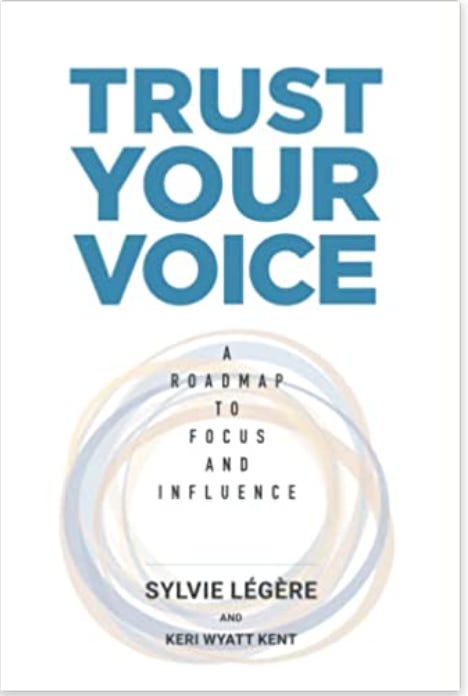You’ve got a great idea for a book. Or maybe you’re an expert in your field, or a leader in your profession. You want to write a book, but you’re not sure how to begin, or even more importantly, how you’d ever finish.
Many authors get a little help along the way. They employ someone to help them a lot (a ghostwriter), a little (a writing coach), or something in between.
That in between space? It’s where you’ll find a coauthor.
A coauthor is a skilled writer who helps you organize, write, and complete your book. If you’ve got ideas or a compelling story but aren’t sure how to turn it into a book, or if you like to write but know you need help with organizing or just writing better, hiring a coauthor (also known as a cowriter or collaborative writer) might be worth doing.
Note: A coauthor can be someone who shares your expertise and writes the book with you. Two coauthors might work together to brainstorm an outline, then each write half the chapters, for example. Often, this happens when two experts work together to write a book. Think Dr. Henry Cloud and Dr. John Townsend, who wrote many books (including the perennial bestseller Boundaries) together (and also each wrote other books on their own).
More often, though, someone with a great idea (or a compelling story) but not much writing and publishing experience will find the way to get their book finished is to hire a coauthor or cowriter. Many people start writing a book (or they want to start but haven’t quite yet), but then they get stuck. They might lack motivation, struggle to develop writing skills, or just don’t know how to navigate the journey from idea to published book. If you’ve never written a book before, figuring out how to organize it and get it written can be daunting. That’s often what motivates new writers to hire a cowriter.
I’ve coauthored more than a dozen books, and also written and published twelve books as a solo author. As a coauthor, or what I like to call a collaborative writer, I work together with the author. While I do most of the writing, they also write parts of the book. I guide them in what needs to be written. I interview them multiple times, and often also interview other sources, or research by reading other books. I write the first draft of each chapter, then send it to my coauthor to revise and fill in missing information. Sometimes I will take a chapter or partial chapter my coauthor has created, figure out where it belongs in the book, and I will polish the writing. Often, this means that after a conversation with my coauthor, I write the first draft, my coauthor writes the second draft, and I write the third draft.
In some cases, my coauthor also hires my team to help them self-publish, once the book is complete. Other coauthors approach a traditional publisher with our book.
If you’d like to hear more about the collaborative process, listen to this podcast that my coauthor Sylvie Légère and I did about our experience cowriting her book, Trust Your Voice. (Click the title to get a closer look at this book.)
In these collaborative writing partnerships, typically one person has the idea or compelling story they want to turn into a book. The second person (and that is me in this case) has the writing and publishing experience to help them develop a clear outline, a logical narrative arc, and a strong “hook” for the book (and for each chapter). A coauthor often researches the details, polishes the writing, and so on. Because I’ve written more than two dozen books, I’m familiar with the process and know what needs to be done to go from idea to published book.
How is cowriting different from ghostwriting?
A ghostwriter does all the writing and research. They typically begin by interviewing the author, then they take the author’s idea and run with it. They conduct all the research and write the book on behalf of the author. They also, as the name implies, remain invisible, like a ghost. They don’t have their name on the book or get credit for writing. (Some even sign a non-disclosure agreement saying they won’t reveal that they wrote your book for you.) They typically charge a lot more than a collaborative writer, because they do more of the work. Depending on book length, and the amount of research they do, an experienced ghostwriter can charge as much as $1 per word to write your book. And since the average novel is 50,000 to 90,000 words—you do the math.
Most celebrity memoirs are written by ghostwriters. Famous “authors” (or more accurately, their publishers) sometimes pay ghostwriters six figure advances.
So if you want someone else to do all the work, and you’ve got a sizable budget, you might want to hire a ghostwriter.
I find that most people who say they “have a book in them” need a coauthor or collaborator to help them bring that book idea to life.
They don’t need someone to do it for them, but they might need someone to do it with them.
If you like to write and want to learn to do it better, hiring a cowriter is a great way to learn and ensure you will complete your book. I typically collaborate with someone who needs my writing and research expertise. They hire me to guide them on an unfamiliar journey and do much of the writing. They have experiences, passion, ideas—but they need a guide to help them to know what to do with all that raw material. I often give my coauthors short assignments, asking them to write about a specific topic or experience, then I weave that into the book manuscript for them. We collaborate and talk through every chapter, working together to create the book manuscript.
The coauthor typically has their name on the book as well. Sometimes it will say the author’s name, then “as told to” or “with” the coauthor. Other times, the byline on the book will just be Author and Coauthor.
The cost for hiring a cowriter is often about half of what a ghostwriter would charge, but actually depends on many factors:
--how well-developed is the book idea?
—how long is the book?
--how much of the writing will the author do themselves? (or have they already done)
--what is the path to publication?
The path to publication matters immensely. If you’re able to secure a contract with a traditional royalty publisher, your cowriter will likely receive a portion of the advance and royalties paid by the publisher. Which means you don’t have to pay them out of your own pocket. However, in order to get that contract, you’ll need to have a strong platform and a solid book proposal. You may have to hire a writer to create your proposal for you, since the proposal includes at least two sample chapters and the book outline.
If you plan to self-publish, the price for hiring a collaborative writer varies as well, depending on how much work will be involved in getting from idea to published book. Like any journey, the cost in both time and money to reach the destination depends on where you are starting. It also depends on how much of the writing you’re asking your coauthor to do. Finally, price varies according to the experience of the collaborator you hire. An experienced coauthor, one who has successfully published books in the past, charges more.
What does a writing coach do?
Some writers have the skills to write a book. They simply need someone to coach them along, not do it for them. This writer might choose to hire a writing coach or join a writing cohort led by a coach for a group experience.
Writing coaches (sometimes called book coaches) will review your work, but not rewrite it for you. They’ll offer feedback and constructive advice, but it’s up to you to take their advice and revise your manuscript. They typically charge a monthly fee.
Sometimes, these coaching sessions are one-on-one. Other times, the coaching is delivered in a group context, called a writers’ cohort, where the group learns together (like taking a writing class) but then the coach also gives each individual in the class feedback on their writing.
Sneak preview: we will have a non-fiction writers’ cohort starting in the first quarter of 2023. Be sure to stay tuned for details on this group coaching experience.
If you want to write a book and think you might want to hire me as a coauthor, visit my website to contact me for a free consultation and price quote.







These are very interesting descriptions of the many paths to producing a book. It also does not editorialize much about preferred approaches. My recollection in the mid 1980s was that our mutual mentor Paul Fromer was that he did not like the practice of ghost writing. Again, this is from a long time ago, but it seemed he was especially critical of Patricia Cornwell's work for Ruth Bell Graham. Would you describe your take on ghost writing as akin to or in contrast of Fromer's?